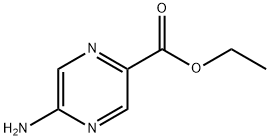Hi, I wanted to ask about vaccines and blood sugar levels. Some people mention that shots could make blood sugar go up, especially for those with diabetes. Is it possible for vaccines to actually affect glucose levels, or is that just a short-term reaction? How long would any increase last, and should people with diabetes be extra careful when getting vaccinated? Are certain vaccines more likely to cause this, or is it a general effect?
Can Vaccines Raise Blood Sugar? What You Need to Know
Related Encyclopedia

- 7658-08-4
- C6H12O5
- 164.16
- All (0)
- China (0)
- (0)
- 13405-60-2
- C13H16O10
- 332.26
- All (0)
- China (0)
- (0)
- 87733-75-3
- C5H9NO3
- 131.13000
- All (23)
- China (21)
- (23)

- 93780-23-5
- C6H12O6
- 180.15600
- All (23)
- China (21)
- (23)

- 3056-44-8
- C6H10O6
- 178.14000
- All (0)
- China (0)
- (0)

- 1007363-58-7
- C7H11F3O6
- 248.15400
- All (0)
- China (0)
- (0)
- 22732-83-8
- C16H25N5O15P2
- 589.34200
- All (0)
- China (0)
- (0)
- 40010-57-9
- C6H12O6
- 186.11200
- All (0)
- China (0)
- (0)
- 125186-41-6
- C12H23O14P
- 422.27600
- All (0)
- China (0)
- (0)

- 608-81-1
- C6H13NO6
- 195.17100
- All (0)
- China (0)
- (0)
Related Products More >
-
- 5996-10-1
- USD 525.0000
- 25kg
-
- 921-60-8
- Request For Quotation
-
- 9055-00-9
- Request For Quotation
- As your request
-
- 9055-00-9
- Request For Quotation
- 25KG/Drum
-
- 9055-00-9
- Request For Quotation
- kg
-
- 9055-00-9
- Request For Quotation
- 25kg/bag
-
- 9028-53-9
- Request For Quotation
-
- 9001-41-6
- Request For Quotation
- 25kg/Drum




People with diabetes might notice a small bump in blood sugar after a vaccine, but it’s generally mild and manageable. It helps to monitor your levels as usual and stay hydrated. Eating normally and keeping up with any medication routines usually keeps things stable. The important thing is that the benefits of vaccination outweigh this minor, temporary effect for most people.
Chemically, vaccine excipients—such as adjuvants or stabilizers—play no direct role in glucose regulation. Aluminum-based adjuvants, commonly used to enhance immune responses, do not interact with metabolic pathways. However, stress hormones like cortisol and adrenaline, released during the anxiety of needle administration, can further elevate blood sugar by promoting glycogen breakdown in the liver and inhibiting glucose uptake by muscles. This hormonal surge is short-lived but may compound existing metabolic imbalances in susceptible individuals.
From a practical standpoint, healthcare providers often advise diabetic patients to monitor their blood sugar more frequently in the 48 hours following vaccination, adjusting medication or diet as needed to counteract potential spikes. In industrial contexts, vaccine manufacturing adheres to strict purity standards to avoid contaminants that might interfere with endocrine function, ensuring safety across diverse populations.
Cross-disciplinary insights from immunology and endocrinology reveal that while vaccines are critical for preventing infectious diseases, their metabolic side effects underscore the importance of personalized medicine. For instance, individuals with adrenal insufficiency or uncontrolled diabetes may require stress-dose corticosteroids or insulin adjustments during immunization. By integrating metabolic considerations into vaccination protocols, the medical field can optimize both immune protection and metabolic stability, minimizing unintended health consequences.
The magnitude of this glucose fluctuation varies depending on individual factors, such as baseline metabolic health, age, and pre-existing conditions like diabetes. For instance, a person with well-controlled type 2 diabetes may notice a small, temporary spike in their glucose readings following an influenza or COVID-19 vaccine, whereas someone with normal glucose regulation may not observe any noticeable change. Monitoring blood sugar during this period allows for timely adjustments in diet or medication if needed, ensuring safety without compromising vaccination benefits.
In clinical practice, understanding this mechanism helps healthcare providers advise patients on post-vaccination care. Recommendations may include continuing routine glucose monitoring, maintaining hydration, and adhering to usual medication schedules. Recognizing that vaccines can provoke minor metabolic responses without causing long-term harm allows patients and clinicians to manage expectations while supporting optimal immune protection.
This temporary elevation differs sharply from chronic hyperglycemia, such as that seen in diabetes, which involves sustained insulin dysfunction or resistance. Vaccine-related blood sugar changes are short-lived, typically resolving within 24 to 48 hours as the immune response subsides and hormonal balance is restored. They do not indicate the development of diabetes or permanent metabolic changes.
A common misconception is that vaccines directly disrupt glucose regulation, but the effect is a secondary outcome of immune activation, not a direct interaction with pancreatic function or insulin pathways. For individuals with diabetes, monitoring blood sugar closely after vaccination may be prudent, but adjustments to medication are rarely needed unless fluctuations are significant or prolonged.
Understanding this distinction is important because it clarifies that vaccines do not pose long-term metabolic risks. The transient glucose spike is a normal part of the body’s adaptive response, far outweighed by the protection vaccines provide against infections that could severely disrupt metabolic health.